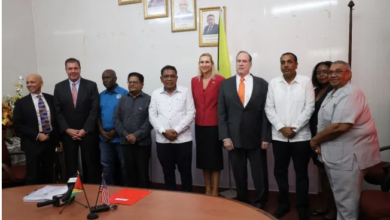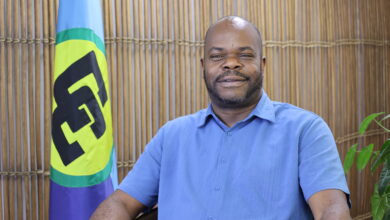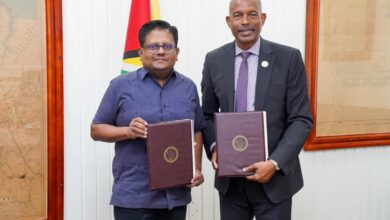Leaders of the Caribbean Community (CARICOM) are being urged to shift from a production focus to gauge and meet internal needs and export demands in the agriculture sector.
This view was expressed by outgoing CARICOM Assistant Secretary-General, Mr. Byron Blake in the first of a series of open fora with staff of the CARICOM Secretariat, at the CARICOM Secretariat, Georgetown office.
Pointing out that the agriculture industry has been on the decline globally, having provided employment for many in the Caribbean, Mr. Blake said regional policy makers should prioritize food production to meet the Region's consumption needs and as a means of reducing the Region's growing food import bill.
Mr. Blake said the Region currently has a food import bill approaching US$2 billion, which he added is significantly higher than the 1974 bill of US$. 4 billion. He added that eating preferences largely fed by mass media advertisements has influenced this trend.
Mr. Blake noted too that the world is now demanding natural products hence the need for the Region to seize the opportunity to structure its agriculture industry to provide some of these products. In this vein, Mr. Blake suggested that regional Agriculture policy-makers closely examine the food based needs of the world with a view to enhancing the sector's productive capacity.
The outgoing CARICOM official held that output has impeded the Region's traditional agriculture over the years due to the inability to identify and utilise fertilizers and pesticides that would assist the quality and quantity of harvest. He said the world is moving in this direction, which now requires that the Region look at the natural products on demand, including raw sugar.
“We have to organise it in a way that it can be competitive, and we have to look at it differently, in terms of including small farmers who will produce quality that is delivered on demand,” Mr Blake said. He purported that this experience has worked in the past for bananas, and should be revisited based on a system of market research, to ascertain production-enhancing methods including the chemicals and fertilizers necessary to ensure quality production arrangements are in place.
Mr. Blake's meetings with staff will continue on 26 and 27 August 2004
Contact:
carisec3@caricom.org or carisec4@caricom.org





